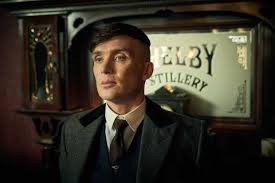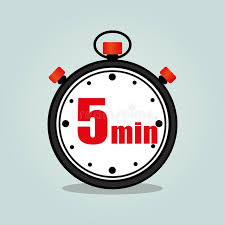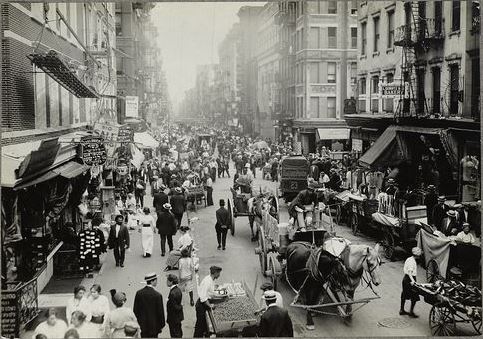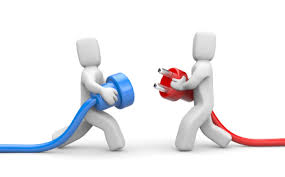Our handsome protagonist appears to be in desperate straits. The emissary of a rival gang has smashed his way into the office. (Burglar alarms are not yet a thing during prohibition.) The intruder is accompanied by half a dozen armed thugs. The hero of the show is—gasp!–on his own. The invader makes his threat clear: get out of the hooch business. Do not produce and distribute any more illegal whiskey. The alternative, should this explicit warning go unheeded, is an abrupt and gruesome death. A gun pointed at the head of the protagonist makes the message explicit.

But wait! It turns out that the protagonist is three steps ahead. Unbeknown to the audience, he has bribed the assemblage of thugs—each of them! It is the representative of the opposing mob who is unsupported. It is the interloper who gets shot in the head, expiring on the hard, cold floor, spouting buckets of blood. Bravo! The criminal for whom we are rooting has triumphed over the criminal for whom we are not. Justice is served.
Or is it? Or is the reality only that one bunch of psychopaths has prevailed over another horde of similarly deranged assassins? It’s hard for me to have an informed opinion. I could only stomach a few minutes of episode something of season something else before retiring to another room to do some writing. What happened to the invading thug? Beats me. Five minutes of watching contending alcohol distributors slaughter one another fulfilled my quotient for violence for 2020. I feel confident that the secondary losses—his widow, his children growing up without a father—were not addressed in a show glorifying astute felons.

I am the grandson of a less successful if less fictionalized thug. My grandfather, after whom I am named, drove a beer truck during prohibition. In December, 1929, he was murdered–presumably by members of a competing gang. My grandfather’s bullet riddled body was found in a New Jersey swamp; the murderers were not found, in a swamp or elsewhere. My grandmother, his widow, went to work selling aprons door to door. To my knowledge, there are few media representations of a woman with a sixth-grade education trying to make a living during the depression by selling aprons.

A series of movies highlighting the escapades—betrayals, machinations, assassinations—of rival gangs of criminals won awards. The collateral damage—sex workers, overdose deaths, orphaned children—are overlooked. History is written by the winners. But are script writers shackled to writing only about treachery and premeditated viciousness? Those movies with Marlon Brando and Robert Duvall are well known. My grandmother, feeding a family on earnings of twelve dollars a week, garnered less media attention.
Maybe I’m too close to this topic to be objective. My dad mourned the loss of his father for 89 years. I have no interest in trying to curtail violent programming. That horse is out of the barn, down the road, in the next town. Indeed, that horse is so long gone he could well be in witness protection in Arizona by now. Nor am I concentrating my attention on depriving citizens of their inalienable right to develop substance use disorder from either alcohol or opioids. Denying addictive types access to their substance of choice is failed policy. I am wondering what message is being communicated to our children. If the protagonists of television and movies are the successful thugs, we might do better to limit what we allow our children to watch while we have the chance. We might also be well advised to model our own sobriety.

My dad’s mom considered giving up her son for adoption. She could not afford to feed him nor to buy him clothes. She did not leave him at the orphanage. Nor did she accept suitors who did not want to feed the child of a dead mid-level thug. Instead, she got through somehow. Her life consisted of work and childcare and must have been tedious without a romantic interest or a life of the mind. My grandmother never killed anyone in a clever way or otherwise, but her life was marred by the violence associated with illicit substances. No one will ever make a movie about such a plebeian woman. But if such a film were made, I might be able to stay in the room and watch more than five minutes of it.

There is a disconnect between the lives of most people and the lives of the glorified criminals about whom TV shows and movies are made. There is a disconnect between the penthouses and lifestyles of the successful villains and the ruined lives of those affected by their misanthropy. There is a disconnect between the four million people who tune it to the show and the several dozen people who read this blog about how to raise healthy kids in an unhealthy world. As far as you and your children are concerned, it certainly seems time to disconnect the conduits by which violence and meanness are extolled for them.
I have to believe that my grandmother would approve of your sacrifice.



5 thoughts on “Disconnect”
Thank you again for another thoughtful and brilliant composition!
When the internet/tv is your primary baby sitter, this also contributes to the likelihood of undesired consequences. And while we’re at it, you can also add the news channels to your list !
Thank you, David. This post is so pertinent, not just for parents, but for everyone. Unfortunately, the people who would benefit most from considering what you’ve written are probably never going to even read it — they’re too busy watching the glorification of violence in their medium of choice. But just as a long journey starts with a single step, a movement can start with a single idea. Thanks for the idea. -jim
Thanks again for a heartfelt and aptly titled commentary.
Your piece describes a disconnect between crime drama and reality,
between actions and consequences.
It also, using the word in another sense, provides a response and perhaps acure for the ailment.
If you and yours are suffering from disconnected entertainments, disconnect from them.
Put your attention in a better direction.
In Spanish, the word is “desapego” — get “unstuck” from what is hitting and hurting you.
Thanks again.
keep writing…..and sharing another perspective. as the Martin stated above…. its a journey. And a worthwhile one.